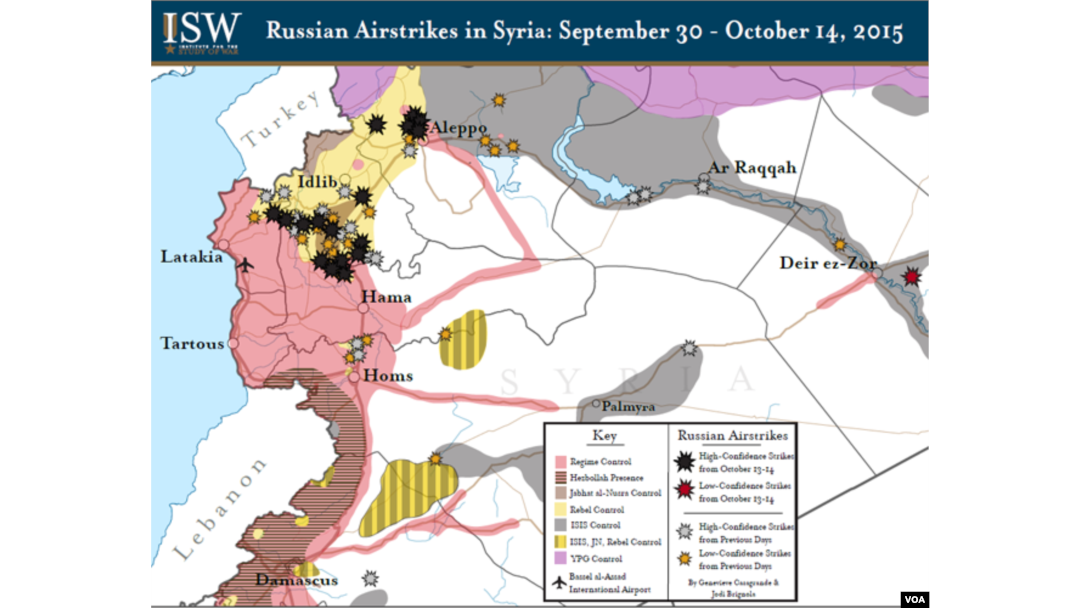The United States said it would use Friday's international talks on Syria to pave the way for a future without President Bashar al-Assad.
At least 13 nations will participate in the Vienna talks, including Iran and Russia — Assad's top two allies, whose military involvement in Syria is aimed at propping up his floundering regime.
Secretary of State John Kerry, who met separately Thursday with his Russian and Iranian counterparts and with other senior diplomats in Vienna, said Friday's talks would offer the most promising opportunity in years to end the country's bloody conflict and to "chart a course out of hell."
State Department spokesman John Kirby said Thursday that the focus in Vienna would be on reaching a framework for a political transition in Syria that can work.
"A framework of a government that doesn't include Bashar al-Assad and can be enduring and stable — that's what we're going after," Kirby said.
Reaching that framework will not be easy, and there are unlikely to be any major breakthroughs Friday. Joining the U.S. in demanding that Assad has to go will be Saudi Arabia and Turkey.
Previous meetings on Syria, from which Iran was excluded, ended in failure. Kirby said there could be no successful political transition in Syria that did not include Iran.
"Iran has an opportunity ... to be a more constructive power in the region and to help the international community to do the right thing here, which is create a process by which the Syrian people can have a representative, inclusive, responsive government at their head, looking after their interests," he said.

Institute for the Study of War, map of Russian airstrikes in Syria, Sept. 30 - Oct. 14, 2015
But some U.S. lawmakers were wary about whether Iran and Russia could contribute anything.
Citing Russian airstrikes against the U.S.-backed Syrian opposition, Republican Senator Bob Corker of Tennessee said during a congressional hearing on U.S. Middle East policy that "it is hard to square ... the facts on the ground with the potential for some grand diplomatic solution."
He later told VOA's Deewa service that America's Mideast allies should get more directly involved in Syria. “At some point, there has got to be a willingness by our Arab friends and others to be much more on the ground,” Corker said.
Retired Marine Corps General John Allen told lawmakers the crisis in Syria was one of the most complex situations he'd seen in his military career.
Syrian National Coalition member Mwafaq Nairabiye warned that Iran would hamper efforts to reach a political resolution because of its support of Assad.
In a Wednesday meeting with a French parliamentary delegation, Assad said that many regional and Western countries, including France, were providing support to armed terrorist groups in Syria. The Syrian leader has frequently referred to Syrian opposition groups as terrorists.
U.N. Secretary-General Ban Ki-moon urged participants in the Vienna talks to show "flexibility" and welcomed Iran's first-time participation in the discussions.
VOA's Pamela Dockins contributed to this report from Vienna.

